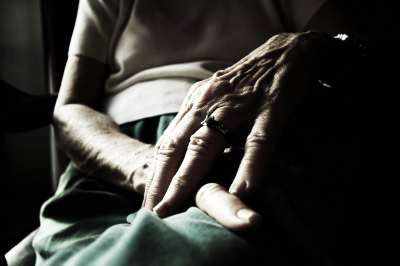All Nonfiction
- Bullying
- Books
- Academic
- Author Interviews
- Celebrity interviews
- College Articles
- College Essays
- Educator of the Year
- Heroes
- Interviews
- Memoir
- Personal Experience
- Sports
- Travel & Culture
All Opinions
- Bullying
- Current Events / Politics
- Discrimination
- Drugs / Alcohol / Smoking
- Entertainment / Celebrities
- Environment
- Love / Relationships
- Movies / Music / TV
- Pop Culture / Trends
- School / College
- Social Issues / Civics
- Spirituality / Religion
- Sports / Hobbies
All Hot Topics
- Bullying
- Community Service
- Environment
- Health
- Letters to the Editor
- Pride & Prejudice
- What Matters
- Back
Summer Guide
- Program Links
- Program Reviews
- Back
College Guide
- College Links
- College Reviews
- College Essays
- College Articles
- Back
Freedom of Religion?
When the 20th century commenced, many schools started out their day with the pledge of allegiance, a religious minute and some time to read an excerpt or small passage from the Bible. But as the century progressed the slow accumulation of anti-religious laws made being a “believer” hard and sometimes even frowned upon.
The separation of religion in schools is a huge mistake that will later have detrimental and shaking consequences.
Being a religious person should not have to be a personal thing. While kneeling down in the front of a classroom of students and pleading your sins to God isn’t appropriate, a small, heartfelt prayer in a time given to you shouldn’t be a huge deal. But as we move farther and farther into this era quite a lot of things associated with the word “God” is looked down upon. Some schools are even going as far as to stop saying the pledge of allegiance because of its reference to God.
This country was built upon a foundation of Christianity. In the Declaration of Independence, Thomas Jefferson wrote, “…all men are created equal, that they are endowed by their Creator with certain unalienable rights...” The founding fathers sacrificed themselves and their families to give us a country that allowed us to worship freely. They left England because their religious independence was stunted. What kind of country are we to throw away so liberally what others died and went to war for?
We are also given through the grace of God the right to “life, liberty, and the pursuit of happiness.” As an American citizen we are guaranteed the ability to pursue whatever we deem appropriate as long as it doesn’t infringe upon the rights of others. And that includes the right to prayer in schools. But the same government that sustains the declaration doesn’t apply this right their laws. They continue to pass edicts that upset the basis on which their ability to vote for those laws was founded on. Even though the declaration is just a list of grievances, within those complaints are the foundation that America was built upon; the individual. And the individual’s religious status is just as important as the masses. Even our President omits religion from his political standings. In a 2010 speech Barack Obama gave, he quoted the beginning of the declaration but failed to say “Creator” as it is written in the actual document. Not only did he make this omission once, but did it again just less than two months later. When the leaders of our country misquote the general, rudimentary frame that set the stage for their power, it is obvious proof of a larger corruption problem than just the exclusion of religion in educational settings.
Some might say those in favor of the barring of prayer in schools believe that it is unfair to push their religious customs on those who do not believe the same way, but those who do not want prayer in school are doing the exact same thing back; forcing their traditions on those who do not worship similarly. No one says they have to pray as well, but just be respectful of that time. Perhaps a full moment of silence would be more beneficial for those who wish to be spiritual, and the full respectful silence of those who do not.
This country was founded on exceptionalism and individualism. If we are unable to actively to do what is stated in Declaration of Independence, a document that also criticized the lack of spiritual liberty, then we are lying to everyone and telling them we have freedom of religion when in actuality the correct term would be “freedom of religion as long as everyone believes as you do.”
And where is the exceptionalism in that?

Similar Articles
JOIN THE DISCUSSION
This article has 2 comments.
